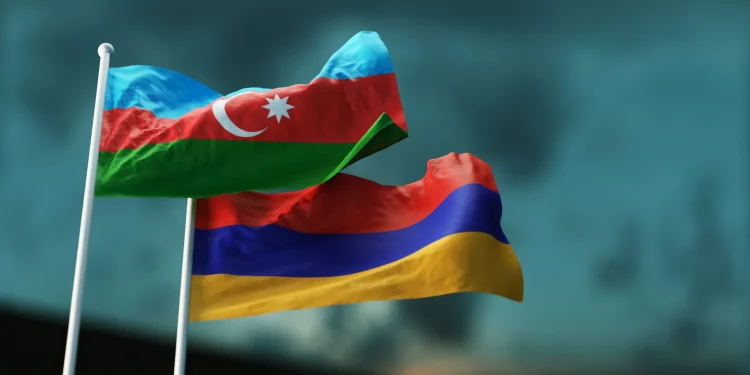Since 1994, Azerbaijan’s wealth derived from oil and gas resources has enabled its increases in military spending
Azerbaijan has initiated a military operation in the Nagorno-Karabakh region, stating that this operation will continue until Armenian forces capitulate. This move on Tuesday has reignited tensions in the ethnically Armenian enclave within Azerbaijani territory, a long-standing flashpoint that dates back to the dissolution of the Soviet Union.
While Nagorno-Karabakh is internationally recognised as Azerbaijani land, it is administered by separatist Armenians, who assert that the region, home to approximately 120,000 people, is their ancestral homeland. It is estimated that there have already been hundreds of casualties, though exact figures are lacking.
The origins of this conflict trace back to 1994 when ethnic Armenian forces, with support from the Armenian military, gained control over Nagorno-Karabakh and surrounding territories, marking the end of a separatist war. However, a new bout of hostilities in 2020 resulted in Azerbaijan regaining control of parts of Nagorno-Karabakh.
Armenia, for its part, states that its armed forces are not present in Nagorno-Karabakh and that the situation along its border with Azerbaijan remains stable. In response to the escalating crisis, Armenia has appealed to members of the UN Security Council and Russian peacekeepers deployed following the previous conflict in 2020 to intervene.
Another shock for energy markets?
Since 1994, Azerbaijan’s wealth derived from oil and gas resources has enabled its increases in military spending. Azerbaijan’s Baku-Tbilisi-Ceyhan (BTC) oil pipeline has played an important role, with increased supplies to Europe, particularly after disruptions in Black Sea shipping due to Russia‘s war in Ukraine.
As Europe seeks alternatives to Russian gas, Azerbaijan planned to incrementally increase its gas exports to the continent, with a target of doubling exports to 20 billion cubic metres by 2027. With the outbreak of this conflict, it remains uncertain whether military realities and international actions might hamper the flow of energy in an unstable market – a scary prospect for an already struggling Europe.
The tangled web of global alliances
The modern-day boundaries of Armenia and Azerbaijan have a history of flux under the dominion of larger empires like Russia, the Ottoman Empire, and Persia. Their paths to independence were marred by conflict in the aftermath of World War I, when Armenia found backing from Russia, while Azerbaijan received support from Ottoman Turkey, turning the region into a proxy battleground.
Nagorno-Karabakh, the mountainous region inhabited by both Armenians and Azeris, emerged as a focal point of tension. It holds deep significance in the cultural narratives of both countries, intensifying the conflict. Turkey’s long-standing closed border and lack of diplomatic ties with Armenia are partially rooted in this conflict, along with broader tensions stemming from the Armenian Genocide of 1915. (Though in recent times, there have been attempts to normalise relations and partially reopen the border.)
Turkey has consistently sided with Azerbaijan in the Nagorno-Karabakh dispute, with military backing, including F-16 fighter jets and drones, playing a decisive role in the 2020 conflict. Subsequently, both nations entered into a defence pact, reflecting Turkey’s efforts to assert its influence in the region.
Russia, as a nearby nuclear superpower and a former regional hegemon, wields big influence over both Armenia and Azerbaijan. It has a defence pact with Armenia, albeit one that doesn’t explicitly cover Nagorno-Karabakh. Armenia increasingly depends on the security provided by Russian military bases, something in doubt due to Russia’s involvement in the Ukraine War.
Meanwhile, Iran is also an ally of Armenia and is likely to play its cards in the situation as well. While the Western powers like the USA and France have called for an immediate end to hostilities, their responses will be tempered by the realities of energy supplies and great power competition with Russia.
The situation is still evolving, and while what the nearby stakeholders of Russia, Turkey, and Iran will do is uncertain, the world can ill afford even more instability when it is already dealing with a major war in Ukraine, a wave of coups in Africa, high inflation and a multitude of other issues.

















